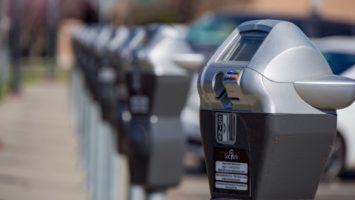
A number of universities and colleges in the United States are offering training in the technology needed to run smart cities. Heinz College at Carnegie Mellon University in Pittsburgh, Pennsylvania has master’s degree program that uses experiential learning – a real-world application of skills through group projects and internship opportunities. Instead of writing a thesis, students work on teams to tackle a real-world problem with a real client. The public policy degree program has concentrations such as urban and regional economic development, energy systems and public policy, environmental policy, and health policy.
“We all recognize that technology is transforming society. Good or bad, it has disrupted the way we interact with our environment and interact with each other. We’re trying to train our students now so they will be effective leaders in the future to help society move through this transformational change,” said Jackie Speedy, associate dean at Heinz College.
Ohio State University received a $40 million US Department of Transportation (DoT) grant last year and now has one of the first data analytics undergraduate degrees available in the US, said Carla Ballo, assistant vice president for mobility research and business development at Ohio State University’s College of Engineering.
“Out of 13 colleges here, all of them have at least a course in data analytics for their particular field. We’re also offering certificates because the student of today needs to be this multi-disciplined person and most of the degrees coming out of universities today are pretty focused in one area, but students are saying, ‘I need expertise in something to make my mark.’ Continuing education is also important. Your workforce today will quickly become obsolete if you’re not continually doing training and offering certifications. We’re looking at making it a lifetime certificate program,” she said.
At Arizona State University in Tempe, Ariz., the School of Sustainability has undergraduate and graduate programs as well as short courses on sustainability issues. The Sustainable Smart Cities Research Center at the University of Alabama at Birmingham, has a two-year online professional postgraduate program for people already working in smart city-related areas. It provides training in sustainable urban development, low carbon and renewable energy systems, natural resource development and data analytics.
Ballo said, “A smart city is only smart if the citizens have value in the data and they feel like it is improving their lives. If it’s not improving their lives, then you’re doing things but you’re doing meaningless things which do not benefit the city at the end of the day.”


